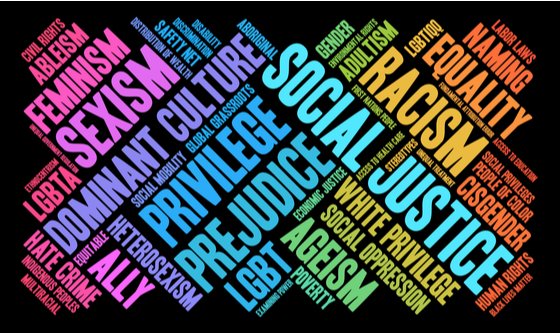
How to be a good ally
Wondering what you can do about biases even though Pride Month is over? Then you’re already on the path to allyship.
An ally is essentially someone who supports underrepresented groups and minorities such as women, people of colour and gender or sexually divergent people. Allies fight oppression, raise visibility, create opportunities, and stand up for equal rights and representation for these marginalised groups.
Why are allies essential? Because you may not be able to walk in someone else’s shoes, but by recognizing that their path is tougher than yours, you can try your best to improve it in any way possible.
A straight ally is a cisgender or heterosexual person who supports and stands up for LGBTQI+ rights and representation. While there is no set way to be any kind of ally, doing so requires learning, advocacy, action (even just within yourself), and a desire to learn from yours and others’ mistakes. You don’t have to join a rally or become a known activist to be a good ally. You can do ‘simpler’ things like listening and having challenging conversations.
It’s important to remember that being an ally is not just standing up for what’s right but acknowledging that you may be part of the problem too.
Would you like to take a more active role in improving the lives of queer people in your life or community? Then here are some dos and don’ts:
Confront your privileges, prejudices, and bias
If acknowledging our societal advantages is challenging, it’s even more so when recognizing our intolerances. You can see how this self-reflection and awareness would be the first step to conscious allyship; for us to fight for others we must know what we are fighting for and against. Often, the bigotry we have within ourselves is simply as a result of our environment and not because we are bigots; so, go easy on yourself.
Learn the basics
While self-knowledge is the first step, basic education on gender and sexual identities is also necessary. There are infinite online resources where you can learn more about queer people, their realities, and tribulations. You can also brush up on the terminologies, identities, and expressions while at it.
Show Support
The bedrock of allyship is having people in your corner despite the differences that exist amongst us. Add your voice to issues or instances in support or in defence of queer people. This can be by rooting for gender-neutral public restrooms in the spaces you frequent (which, if we are being honest, already exist, like in everyone’s houses) or by calling out homophobia even when it is veiled in bigoted humour. You can also contact LGBTQI+ organisations in your country to find out how else you can actively help.
Also Read: Tips for when a friend comes out to you
Listen and have an open mind
Listening is half the battle. Not only does it give you insight into a queer person’s preferred pronouns and identifiers by mirroring their language and self-identification, but it will also likely anchor you as someone they can be expressive around.
Exercise Empathy
Outside of the constant threat of physical violence, people tend to forget that language can also be violent. This includes insensitive phrases meant as ‘compliments’ such as, ‘You don’t even look queer’ or ‘She’s so gorgeous/handsome, I would have never guessed she/he was transgender.’
Also Read: Coming out is not easy, here’s why
Don’t focus on the mechanics of their sex life or genitalia
This applies to anyone really. A person’s sexuality and gender are not hinged on what they have between their legs or how they use the parts between their legs. It’s insulting and crass to question anyone about such sensitive issues and a rule of thumb is to ask yourself how you would feel if people made a spectacle of you in this way.
If your curious, then a little light research will give you the answers you are looking for.
Don’t make assumptions on gender or sexuality
Whatever a person tells you they are whether or not it makes visual sense to you is not up for debate – what they say is what they are, in exactly the same way it works for you. Plus, don’t make assumptions about anything; misgendering, for example, is a common mistake but one that can be easily avoided by seeking clarification.
Don’t out queer people directly or casually
Never, ever out a person without their express permission, no matter how open you think they are or how intimately you know them. The act of outing a queer person means potentially endangering their jobs, their families, and their bodies.
Overall know your limits as an ally and don’t be afraid to admit when you don’t know something. As long as your heart’s in the right place you’ll do fine.
Do your gay friends trust you to stand up for them?
